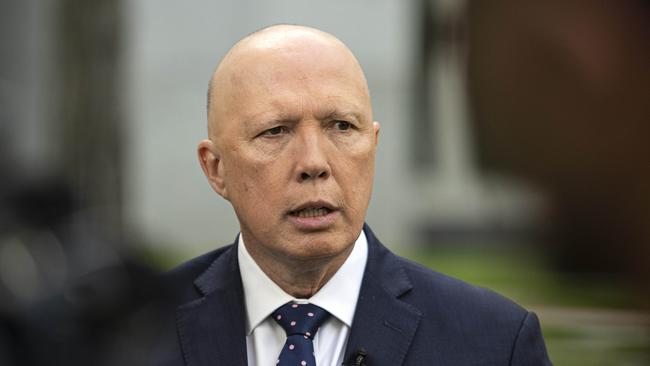
Anthony Albanese’s response was telling. He scored no points for originality when he accused Dutton of a “cheap culture war stunt”. Has the left ever responded to a debate that isn’t going its way without lobbing this inane accusation to try to shut down those who challenge its sacred cows?
I recall writing about new research around phonics more than a decade ago. I was accused of stoking a culture war – for daring to challenge the sacred progressive cow of whole-word teaching that had failed our most vulnerable kids for decades.
The allusion to a “war” was, and remains, deliberate. It suggests something terrible is afoot.
Except that nothing terrible was afoot then. And nor is it now. On behalf of voters who may be curious about how this body will work before it is cemented in the Constitution, Dutton has asked 15 questions the Albanese government should have answered long ago.
Claims by “yes” advocates that anyone looking for details should read hundreds of pages of the Calma-Langton report is pure nonsense for three reasons. First, the report’s claim that the voice will be non-justiciable has now been exploded as a myth. More on that critical issue below. Second, the Albanese government has not formally endorsed that report or any of the multiple permutations and combinations of options that report offers. Third, the Prime Minister put forward a set of words – the Albanese amendment – ergo Dutton’s questions are squarely for the government to answer.
As Albanese contemplates his stubborn refusal to provide details about a change to our Constitution, we should consider what’s next for Dutton.
The Opposition Leader has some important strategic decisions to make, not least of which involves his own party room. Importantly, Dutton must answer calls from some Liberals for a conscience vote on this issue.
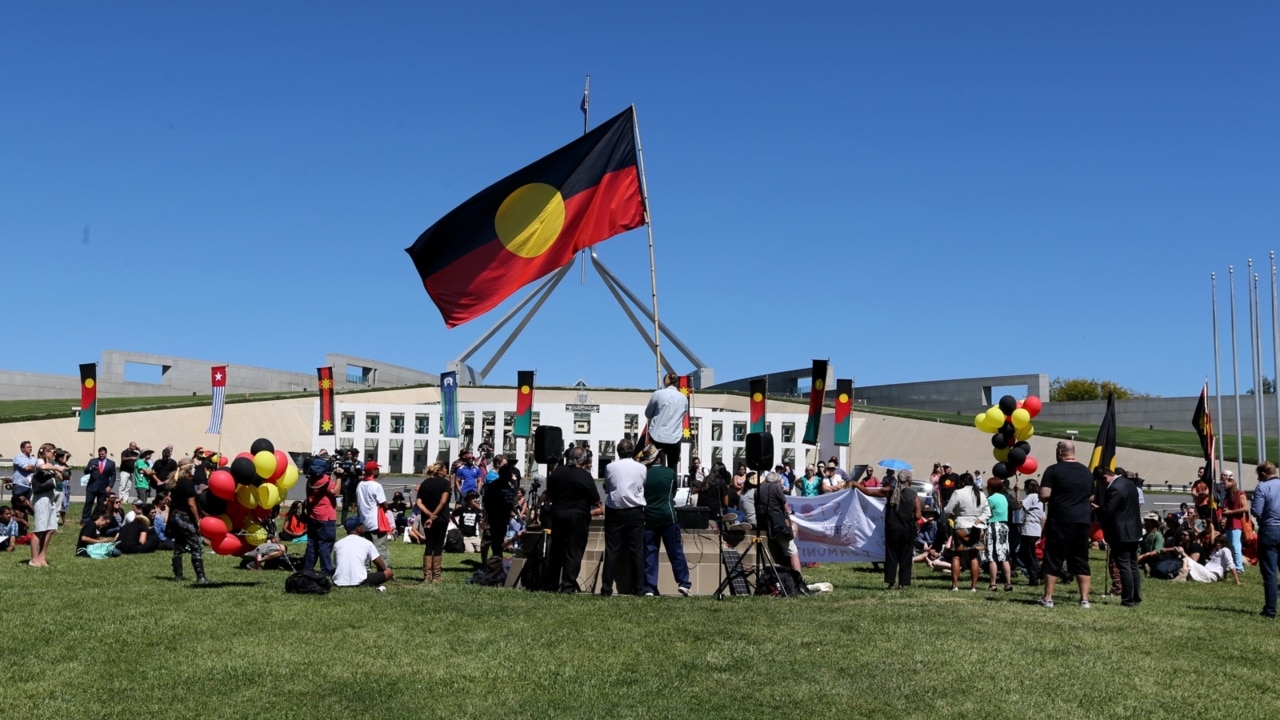
Take Andrew Bragg’s comment, for example, that “the idea of political parties adopting binding positions on public votes (referendums) is strange and virtually unprecedented”.
Dutton won’t find it hard to answer Bragg’s assertions as to precedent given that the NSW Liberal senator could not be less correct if he’d tried to come last on his history assignment. Research prepared for one of Bragg’s party colleagues who did check the facts shows that since its founding in 1944, the Liberal Party in opposition has always opposed attempts by Labor governments to alter the Constitution. The one minor exception was in 1946: it involved a non-controversial issue to allow the federal government to legislate for uncontentious social services such as widows’ pensions and maternity allowances.
Since its formation, the Liberal Party has had no free or conscience votes on enabling legislation to initiate a referendum, with the minor exception of the 1946 change. Other than in 1999, when Liberal MPs, regardless of whether they were on the frontbench or not, were free to campaign for or against the republic referendum, the Liberal Party has always settled on a position in support of or opposition to a referendum and taken that position to the public in the campaign.
Of course, the Liberal Party, unlike the ALP, has always allowed backbenchers to vote their conscience in parliament, even where the party has a stated position. But that is quite a separate matter from demanding the party itself decline to take a position one way or the other.
Precedent is instructive. But the better reason for Dutton to settle a party position is one of principle. The voice is primarily a matter about the distribution of powers under the Constitution. It is not a matter we normally associate with conscience votes – personal matters of individual morality or conduct, such as abortion, euthanasia or same-sex marriage.
The voice goes to the question of who has what rights to make decisions, or be consulted on them prior to decision. This body potentially alters our system of governance.
In fact, it is only after repeated demands for details made in this newspaper and elsewhere that we now know – thanks to former High Court judges Kenneth Hayne and Ian Callinan – that under the Albanese amendment, the reach, role, resources and powers of the voice will, ultimately, be a matter for the High Court.
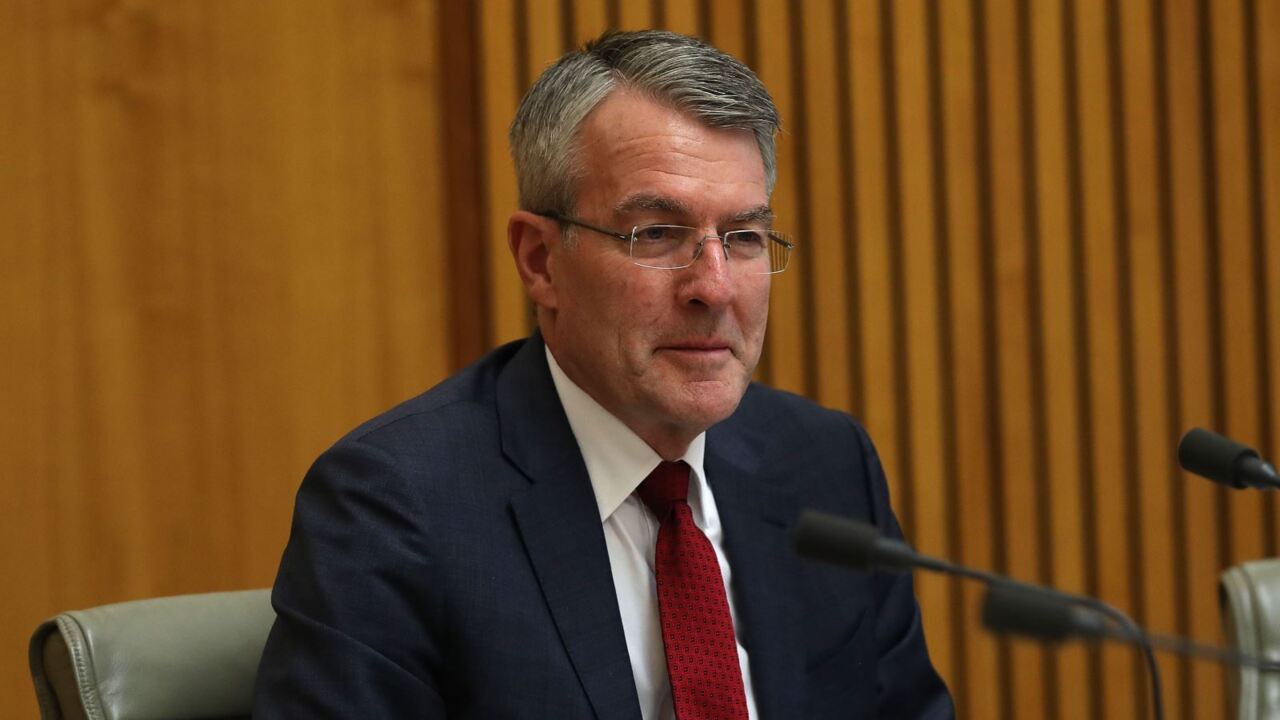
In other words, assurances in the Calma-Langton report that this body would be non-justiciable have proven wrong when tested.
“Non-justiciability” sounds like a complex and technical word but what it means is really a straightforward question of power. Who is the final decision-maker on matters relating to the voice – the High Court or parliament?
Bragg in his 2021 book, Buraadja, assured us that parliament would always remain sovereign in any proposal he recommended. His vibey embrace of the Albanese amendment suggests he may have forgotten his own earlier position.
Leaders cannot avoid having to pull recalcitrant MPs such as Bragg into line. Dutton is also entitled to remind shadow attorney-general Julian Leeser about his own earlier publications, where Leeser steadfastly argued that we must protect our democracy by not equipping courts with powers to usurp parliament. Or will Leeser join Bragg in supporting a constitutionally entrenched body that goes against their own earlier stated principles?
It is notable confirmation that the High Court, not parliament, is the final decision-maker on the voice only came after many Australians asked for answers on the legal implications of the voice. The result is we now better understand that the voice will alter our governance in many ways, not least of all by inviting lawfare around decisions that the voice chooses to involve itself in.
Testing ideas is the sign of a functioning democracy. One person, or a group of people, put forward an idea, and that idea is then tested by vigorous debate. The result of a healthy debate means that an idea is tweaked to reflect necessary changes to improve it. Or an idea is rejected for being exposed as being a bad idea. Or an idea stands stronger because it has been tested.
Albanese’s attempt to taint a request for details as a cheap culture war stunt is itself a tawdry stunt because his vibey tactics and silence about the important details add nothing to the sum total of our knowledge about a change he has proposed to our Constitution.


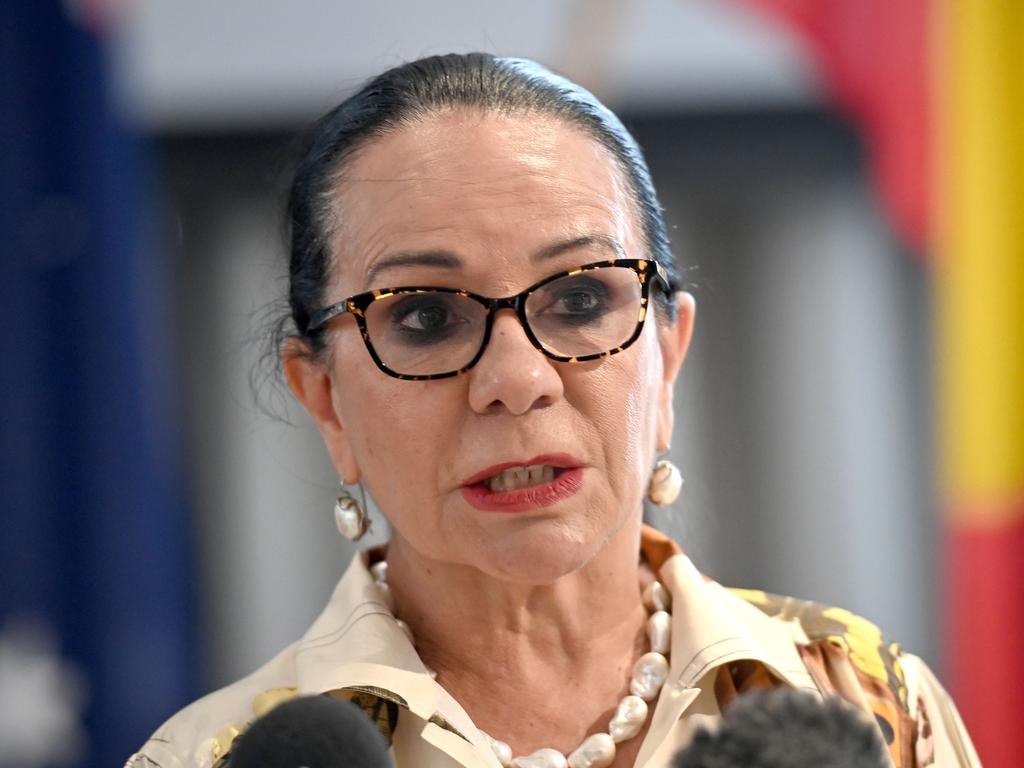
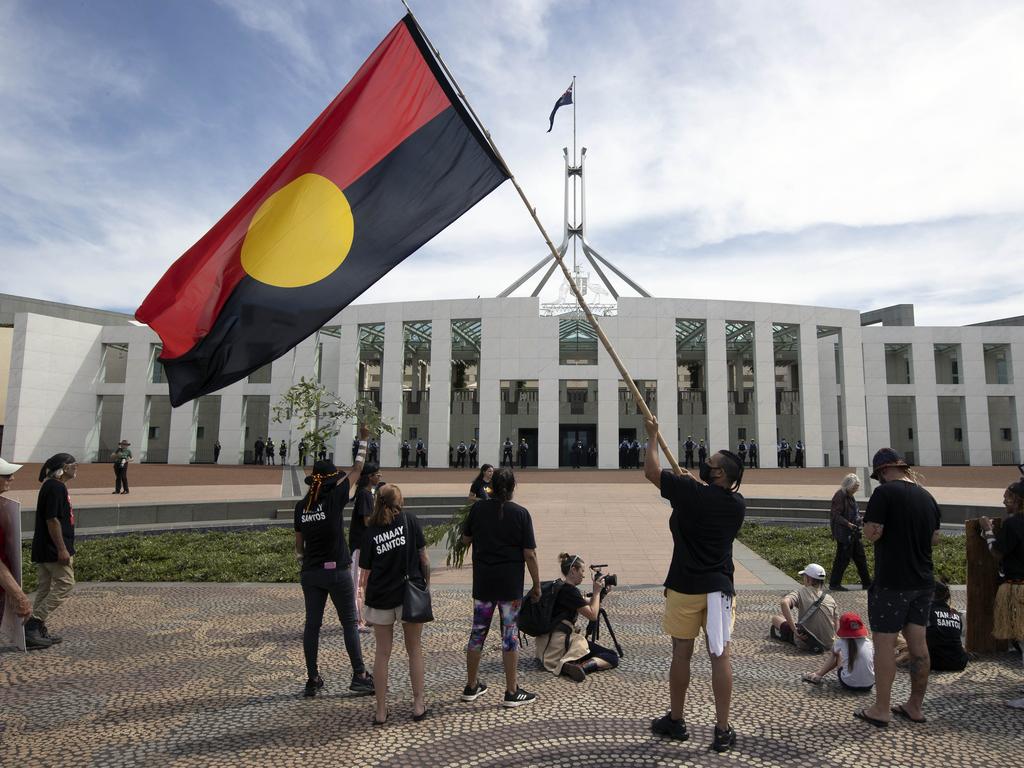
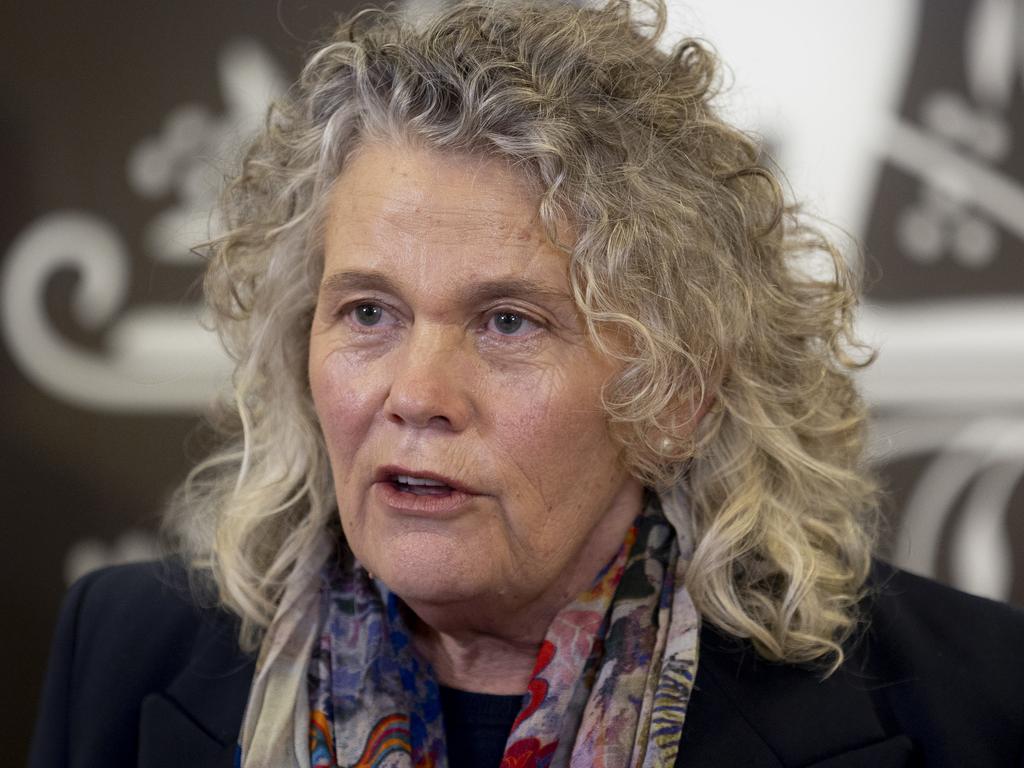
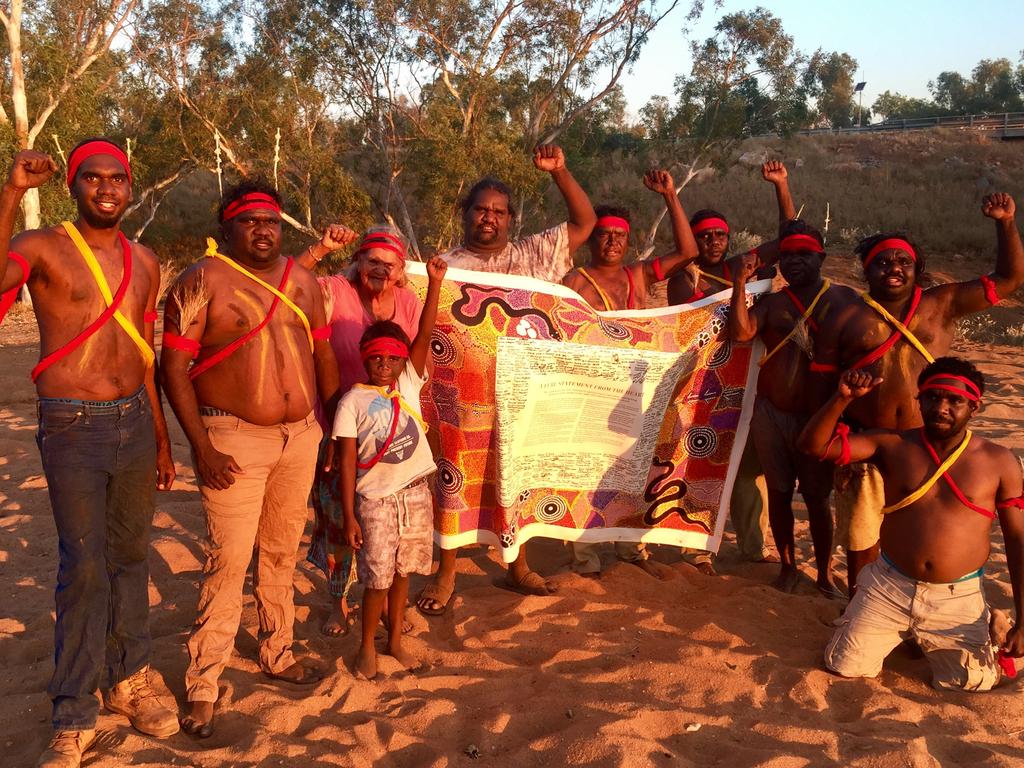


Peter Dutton has been careful, thoughtful and patient about Labor’s proposal to entrench a race-based voice to parliament and executive government in our Constitution. The Opposition Leader’s approach is principled – details about a proposed change to our founding document are critical. However, his polite request for information also means he has not fallen into Labor’s trap to paint him as some kind of immoral spoiler.